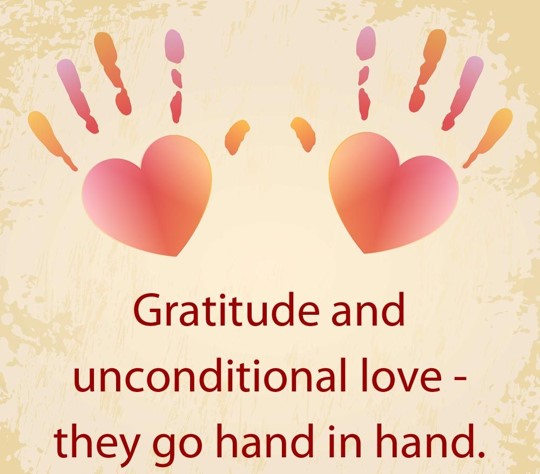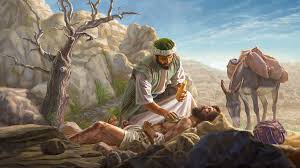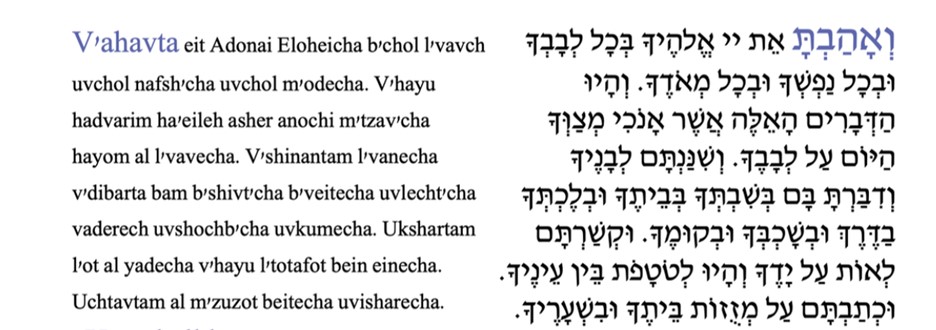Jesus said to his disciples:
“As the Father loves me, so I also love you.
Remain in my love.
If you keep my commandments, you will remain in my love,
just as I have kept my Father’s commandments
and remain in his love.
“I have told you this so that my joy may be in you
and your joy might be complete.
This is my commandment: love one another as I love you.
No one has greater love than this,
to lay down one’s life for one’s friends.
You are my friends if you do what I command you.
I no longer call you slaves,
because a slave does not know what his master is doing.
I have called you friends,
because I have told you everything I have heard from my Father.
It was not you who chose me, but I who chose you
and appointed you to go and bear fruit that will remain,
so that whatever you ask the Father in my name he may give you.
This I command you: love one another.”
John 15: 9-17
One verse captivates my sacred imagination:
No one has greater love than this,
to lay down one’s life for one’s friends.
Have you wrestled with this truth? I’ve been seeking to embody the manifesting possibilities stemming from the power of Jesus’ Unconditional Love enacted in me. It’s a burning, consuming desire in me to do my awful best to live the Truth of His Words.
Let’s set the record straight: it’s not a choice – Jesus’ command us to love this way. I accept that embracing unconditional love involves endless work. Sure, it’s replete with edifying and sanctifying graces but even the saintliest among us will never fully actualize the fruits of this command during our earthly tenure. I think that’s good news. It means we’ll have plenty to do for all of eternity as our Great, Good, and Gracious God turns us over and over again as He coats us in His Infinite vat of Love.
In beautiful, profound, and life changing ways I’ve been granted opportunities to watch Jesus unfold the Power of His Unconditional Love in my heart, mind, soul, and body with the people and situations in my life. For these people and situations I am eternally grateful!

Recently, I had an opportunity to give a short reflection on John’s gospel. As I thought about the verse, “No one has greater love than this, to lay down one’s life for one’s friends,” something new opened for me. Before we go there, let’s start with what we know.
Jesus is speaking to His apostles and disciples at the Last Supper (John chapters 14-17). The cross looms front and center. Jesus will lay down His life for His friends. Clearly, sacrificial Love is at the heart of this verse.
What else might be Jesus teaching us?
Being a storyteller, I’m in the habit of superimposing stories on one another as a way of casting new light on things. I was drawn to Luke’s story of the Good Samaritan:
There was a scholar of the law who stood up to test him and said, “Teacher, what must I do to inherit eternal life?”
Jesus said to him, “What is written in the law? How do you read it?”
He said in reply, “You shall love the Lord, your God, with all your heart, with all your being, with all your strength, and with all your mind, and your neighbor as yourself.”
He replied to him, “You have answered correctly; do this and you will live.”
But because he wished to justify himself, he said to Jesus, “And who is my neighbor?”
Jesus replied, “A man fell victim to robbers as he went down from Jerusalem to Jericho. They stripped and beat him and went off leaving him half-dead.
A priest happened to be going down that road, but when he saw him, he passed by on the opposite side.
Likewise a Levite came to the place, and when he saw him, he passed by on the opposite side.
But a Samaritan traveler who came upon him was moved with compassion at the sight.
He approached the victim, poured oil and wine over his wounds and bandaged them. Then he lifted him up on his own animal, took him to an inn and cared for him.
The next day he took out two silver coins and gave them to the innkeeper with the instruction, ‘Take care of him. If you spend more than what I have given you, I shall repay you on my way back.’
Which of these three, in your opinion, was neighbor to the robbers’ victim?”
He answered, “The one who treated him with mercy.” Jesus said to him, “Go and do likewise.” Luke 10: 25-37

The setup for this story lines up with John’s gospel. Jesus is teaching us about Love. He is challenged by a scholar of the law. Jesus’ response resonates with the core of Judaism which is encapsulated in the Shema that includes the V’ahavta prayer (Deuteronomy 6: 4-9):

Hear, O Israel!* The LORD is our God, the LORD alone!
Therefore, you shall love the LORD, your God, with your whole heart, and with your whole being, and with your whole strength.
Take to heart these words which I command you today.
Keep repeating them to your children. Recite them when you are at home and when you are away, when you lie down and when you get up.
Bind them on your arm as a sign and let them be as a pendant on your forehead.
Write them on the doorposts of your houses and on your gates.
Notice that the question from the scholar is about “inheriting eternal life.” We get to the end of the passage and realize that: to live is to love – and to love is to live; the two are inseparable. The Samaritan story, like the John gospel, is about sacrifice and mercy. We can state that Love and Mercy in the Life of God are one in the same.
When we live in accord with God’s Divine Will, Love and Mercy are intertwined with one another as the reality of eternal life. We see this beautifully reflected in the prayer Jesus gives to Saint Faustina:
Eternal God, in whom mercy is endless and the treasury of compassion inexhaustible, look kindly upon us and increase your mercy in us, that in difficult moments we might not despair nor become despondent, but with great confidence submit ourselves to your holy will, which is Love and Mercy itself. Amen.
In reading this account of Jesus’ exchange with the scholar, I imagine the scholar as challenging Jesus in a way that would have been typical of rabbi student interactions. Perhaps he didn’t know Jesus, and if Jesus was out and about teaching as a rabbi, he would have wanted to validated Jesus’ understanding and authority of the Law.
The scholar of the law in “wanting to justify himself,” asks Jesus a follow-up question that gives our Lord and Savior an opening to land a dozy of a spiritual punch. This question will suck the pompous air out of any self-righteousness held by the scholar, or by anyone, across all times, who quarantines himself from respecting and serving the needs of others.
The scholar asks, “Who is my neighbor?”
As I reflected on the parable, little details began to tickle my sacred imagination in new directions. For the sake of brevity, I’ll list these in bullet fashion:
- What if we thought of the “robbed, injured man” as a metaphor for our spiritual journey in life? Aren’t we all robbed by the principalities of this world who seek to take our soul away from God? Notice that Jesus uses the word, “victim.”
- Aren’t we all in need of spiritual healing? Don’t we all need the love, support, and help of each other to find our way home to our eternal life with God? The man is left stripped (naked) – exposed and vulnerable. The man is half dead, but half dead is not dead and there are always opportunities for Mercy and renewal to be found in the agencies of God’s healing Light and Love working in the world.
- Jesus is purposeful in describing the man as traveling from Jerusalem to Jericho. Jerusalem represents heaven and Jericho represents the world. Although the man was attacked by robbers of “the world” he has culpability and responsibility for his injuries. He choses to leave the heavenly (Holy City of Jerusalem) to engage in the affairs of the world. I believe Jesus is cautioning us to pick the paths of our journeys very carefully.
- It’s the religious (a priest and a Levite) who refuse to help the man in need. And if we stay with the metaphor above, isn’t it ironic that the two authorities who are supposed to be most concerned with the spiritual wellbeing of another, are the first ones to walk away from someone in need?
- The Samaritan is moved by compassion. Jesus is compassion. Compassion knows no limits. The Sacred Heart of Jesus is always ready to envelop anyone in hurt, in pain, and in need. Until we’re washed in the Blood of the Lamb, we require copious amounts of compassion. We’re called to be the hands and hearts of Jesus touching others.
- The Samaritan pours oil and wine on the man’s wounds. Jesus is prefiguring the sacramental supernatural graces of anointing oils and the Eucharistic wine turned in the Blood of Christ. These are powerful essential, sensual kinesthetic gifts of the Divine Will that merge heaven and earth into the Sacred Now. The injured man is lifted on an animal – it’s safe for us to assume that it was a donkey. Can you think of another time when a donkey plays a role in the life, passion, and death of Jesus? Here the animal takes a role deigned by our Lord to facilitate the power of healing and love.
- The Samaritan leaves the injured man entrusting him into the care of another. He goes about his business but not without leaving money, instructions, and the commitment to return and cover any additional expenses.
Isn’t this a mirror of how Jesus comes in and out of our lives? We’re never abandoned but we don’t see Him, and we must trust the agencies of His Love at work in others. Yet, He assures us that He is present and we are encouraged to believe that He comes back to us every time we turn to Him in prayer.
Let me put on a bow on this and wrap it back to the verse from the John, “No one has greater love than this, to lay down one’s life for one’s friends.”
We are to take our journey of spiritual healing to heaven with a Jesus, who like the resurrected Jesus appears one moment and then is gone the next. The Community of believers, the Church – the Mystical Body of Christ must stand ready to serve one another other.
The parable of the Good Samaritan teaches us that we are to lay down our lives for one another in helping each other desire eternal life with Jesus, the Father, and the Holy Spirit as our Greatest Good. We’re like the robbed man on the side of the road. We’re all healing. We’re all in desperate need of compassion and help. To love in this way invites Love itself to take possession of us. Please Lord, make it so!



